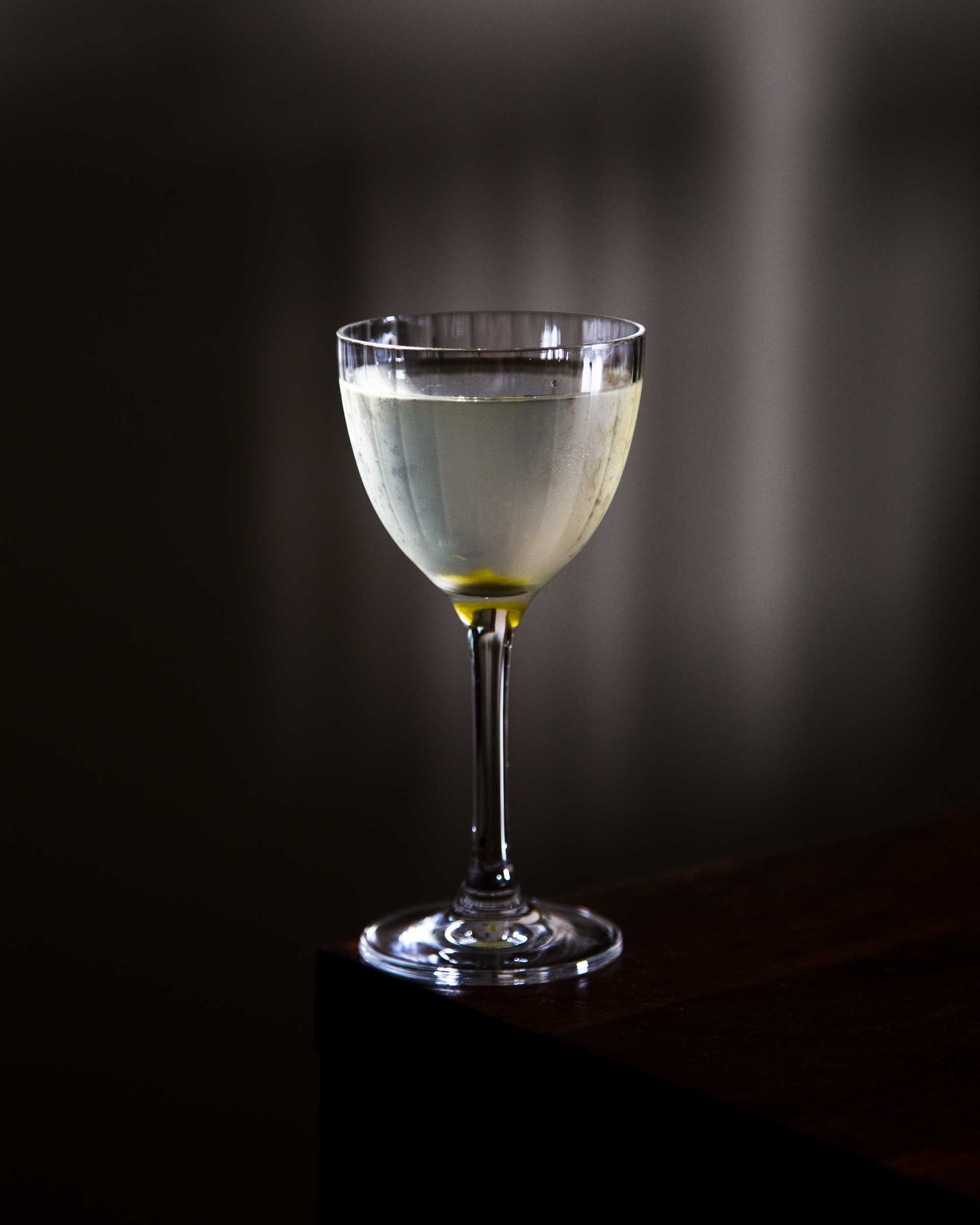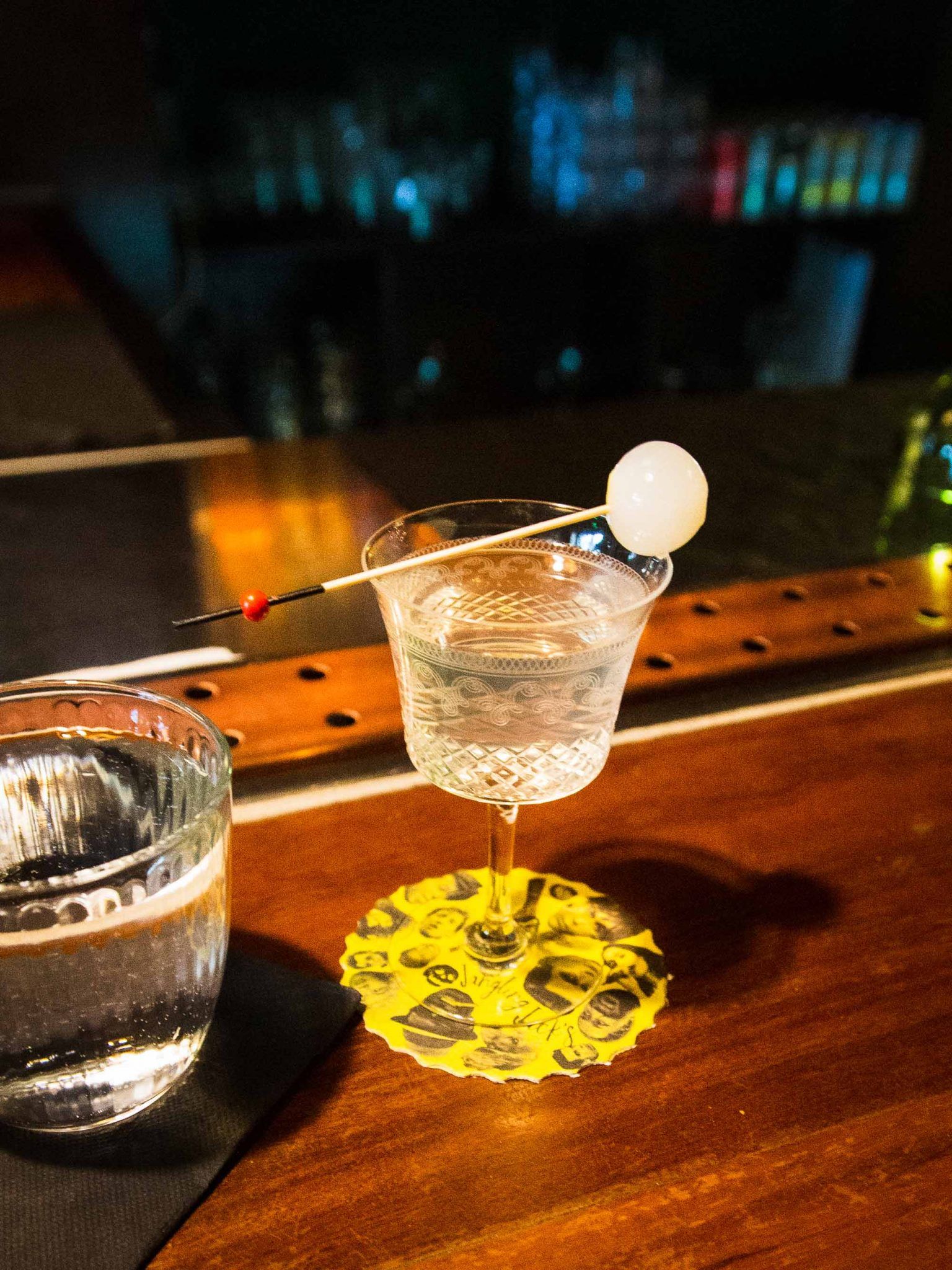On tradition, the Martini, and Christmas
Tradition, ritual and myth — like the precise way one makes a Martini — is what makes us peculiarly human.

"We do this because that's the way we've always done it." It's a justification I can't help but argue with — I tend to think it's good to question authority and tradition and to quiz our customs. And I'd like to think I believe that because I believe in doing things better and fairer and all that; it has been pointed out to me, however, that I posses an oppositional conversation style (something I disagree with, of course) and just like to argue. Perhaps they have a point.
But drinking, cocktails, wine, whatever — they all have their myths and their customs and most of it is malarkey. Don't shake your Martini, because you'll bruise your gin? Whilst I'd prefer a Martini stirred, it is perfectly acceptable to throw one, and if you want to shake a Martini hey, go for it. It's your drink. But this bruising gin palaver is pure bullshit. Someone said it once, it possesed an air of authority, and became fact.
The Martini — a drink for which my affection grows as I get older — is bathed in myths like these. There are rules for making it and rules for drinking it, and a rich cultural histroy surrounding the drink.
But strip the drink back to its most elemental building blocks and the Martini is little more than a vehicle for the easy ingestion of ice cold liquor — it’s an efficient buzz if you can stand the taste.
But a Martini is more than that, right? That's because everything we think a Martini is comes to us from other people, from magazines and books and movies and TV and, not unimportantly, advertising. It’s all tradition and ritual and no small dash of myth.
Take for instance the Winston Churchill line about vermouth: he liked his Martinis bone dry, we’re told, with “a bow in the direction of France.” It's part of the folklore. Never mind that there’s no evidence that Churchill even liked cocktails, let alone a Martini. The closest he got to a mixed drink was a weak Johnnie Walker and water in the mornings. Despite this, each sip of a classic, dry Martini has a drop of the Churchill myth to it.
That myth and countless others make up what we have in a Martini in 2021. No doubt it was different 50 years ago. Today there’s a drop of Mad Men to it, a hint of Dean Martin, and a whole host of other cultural references to what is the king of all cocktails (or so we’re told).
So a cynic might say that the Martini is little more than a couple of measures of hard liquor made palatable by a splash of vermouth; that the romantic veneer of the drink is little more than cover for our deep desire to get a little blotto at the end of the day, a classy (and socially acceptable) way to get a buzz on.
But tradition and ritual and myth — like the precise way one makes a Martini — is what makes us peculiarly human. It is what makes the 25th of December Christmas and not simply another day: the ritual of gathering family around one table to break bread, putting on a spread and pulling apart Christmas crackers — it would be just another meal without the import we give to it. We are meaning-making animals. It’s how we mark the passing of time, how we make sense of it, how we create memories. You’ll always remember the last Christmas you had with a loved one, and you will always remember the first Christmas without them.
But whether it’s a family Christmas or a good Martini, it takes effort to make them memorable. These traditions - small, every day institutions - need to be tended to, given energy, given time, and often at this time of year, a good splash of diplomacy too.
This time of year needs that little extra care. A little extra understanding, a little more awareness of what goes on around us, of how other people are feeling. And perhaps a little forgiveness too. Perhaps someone overcooked the turkey. Perhaps someone is stuck overseas or can’t make it to lunch. Maybe someone fucked up your Martini order at the bar. It happens.
This kind of understanding is what hospitality is all about, after all. I’ll leave you with this allegory.
Removing a patron from a venue is an art form. Sure, one could take the security guard sledgehammer route, turfing the punter in question out the door and banning them from the venue if they push back. But that’s not quite hospitality, is it? Because we all make mistakes, we all overindulge at times, in whichever vice might be our thing. It's times like these that a little care and a little understanding go a long way.
The best practitioner of this art form I’ve ever seen is Phil Gannon, back when he used to run Sydney bar Frankie’s Pizza some years back. I saw it a number of times. These people were upset at being asked to leave, had a skinful in them, and were ready to make a big, drunken deal about it. Phil isn’t a big guy. But he had a way of talking them down — firm, yet understanding, forgiving even — and the gist of it was this: you have to leave, you can’t come back tonight, but I will see you tomorrow afternoon. This can still be your bar, you just have to leave for now. And that's hospitality: you messed up, you’ve been shown the door and pushed through it, but you're invited back again. I love that.
See you at the bar next year.



